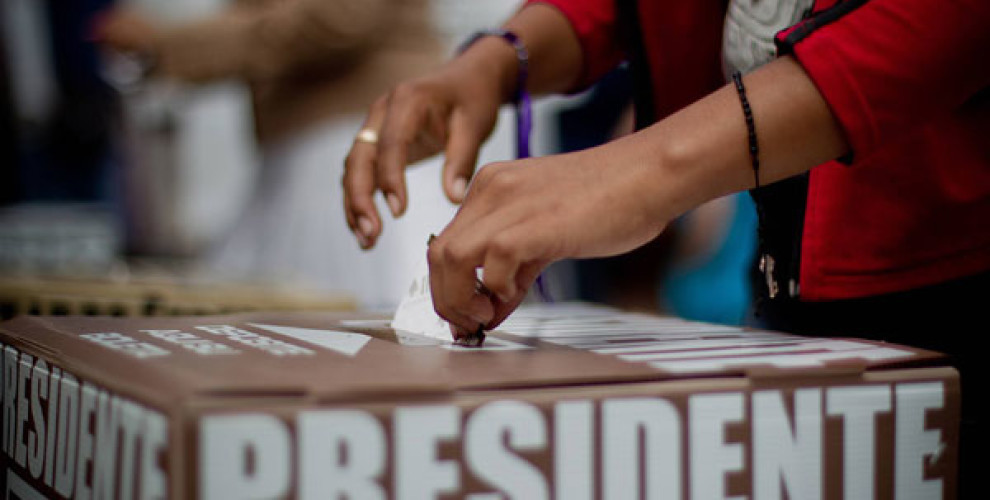Mexico goes to elections on Sunday amid violence
Over 130 candidates have been killed in the violent electoral campaign
Over 130 candidates have been killed in the violent electoral campaign

On Sunday Mexicans will go to the polls to elect President, congressmen, governors and municipal authorities.
The political and social electoral campaign has taken place amid a climate of intense violence: to give only a figure, more than 130 candidates and a score of journalists have been killed during this electoral campaign. To this we must add the alerts of fraud.
The polls as to will win the presidential election constantly give an advantage to the candidate Andrés Manuel López Obrador, with an intention of vote of around 50%.
Obrador is supported by the coalition Juntos Haremos Historia, a group of social and political organizations ranging from the center to the left, quite distant from the traditional political and economic elites that have managed power in Mexico.
Trying to stop the phenomenon of López Obrador's popularity and leadership are the candidates of the traditional forces, the National Action Party (PAN) with Ricardo Anaya, José Antonio Meade for the ruling Institutional Revolutionary Party (PRI), and the current Governor of the State from New Mexico, Jaime Rodríguez, known by the nickname of El Bronco.
López Obrador, ex-governor of the Capital District, and three times candidate for President, seems to have good chances of being elected this time, if mass and brazen fraud does not occur, something not to be ruled out knowing Mexico.
Indeed, in the two previous elections he contested, Obrador was affected in his results by well documented and proved frauds and irregularities.
To assess the importance of the final results of these elections, it should enough to say that Mexico is the second country in population of Latin America with over 120 million inhabitants, behind Brazil, but the first in terms of its economy.
It maintains an active free trade agreement, FTA, with its northern neighbours (the US and Canada). At the moment these same economic, migratory and neighborhood relations are affected by an ongoing re-negotiation of the FTA under the imposition of commercial tariffs by the US, together with the pretension to definitively close the extensive common border the two countries have to any type of migration.
This Latin American country, apparently rich, has in it all the possible contradictions: three billionaires in the Forbes list, being among the 25 countries in the world with more unequal distribution of wealth, incredibly high figures of violence linked to drug trafficking, human trafficking, institutional corruption and all kinds of illegal activities, etc.
Figures that make a typical reading of a civil war neither declared nor recognized.
To all this we must add the economic and political weight and the role that Mexico has traditionally played in Central America and the Caribbean, with special relevance to the case of Cuba, with which it has always maintained open and respectful relations.
Likewise it is to underline the role that the new President can play in the tense struggle that is taking place in Latin America around Venezuela, where until now the neoliberal right has been winning.
All the candidates, with the exception of López Obrador, propose similar programs on economic and political neoliberal bases, of subordination to the current and controversial US administration.
As far as the reform program of López Obrador could go, without a parliamentary majority in such a violent, complex and strategic country, it is clearly unpredictable.
For those same reasons, a part of the Mexican left following on the conception of the Zapatista movement that the country cannot be changed from “above”, but must be built from below is going to actively abstain.
An option to take into account if the fraud finally wins or if López Obrador once in the Presidency is not able to keep his promises.